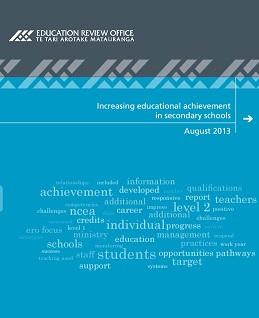Increasing Educational Achievement in Secondary Schools
Published: 15 Aug 2013
This national report presents the findings of ERO’s recent evaluation of the practices used in an initiative to support the improved achievement of a specific group of Year 12 students.
- Audience:
- Māori-medium
- Parents
- Schools
- Content type:
- Research
- Topics:
- Achievement
- Evaluation
- Secondary
- At-risk students











